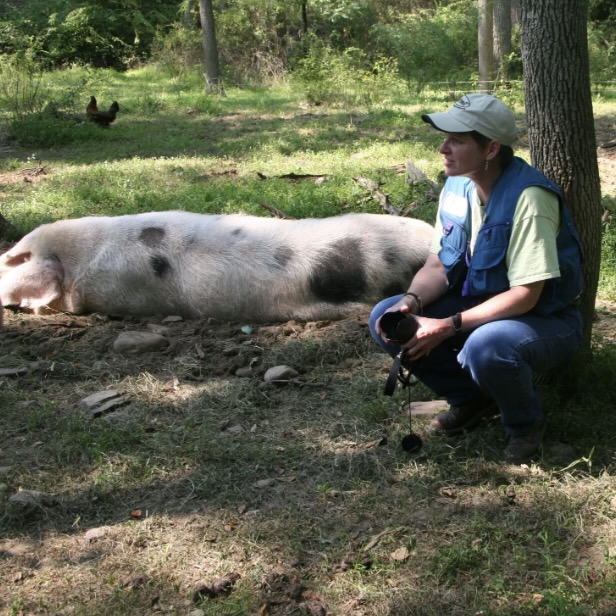Susan Beal, DVM

Susan Beal comes from a long background of holistic veterinary practice and is dedicated to providing integrative care for animals, humans and the environment. Susan is particularly interested in whole farm/whole system pasture-based ecology and offers common sense advice and counsel, with the goal of health from the ground up – thriving individuals and ecosystems.
Dr Beal is past president of the American Holistic Veterinary Medical Association as well as the American Pastured Poultry Producers Association (APPPA.org).
She is an enthusiastic participant and educator in Holistic Management, a whole farm/business decision-making and planning process that considers the triple bottom line of relevant economic, social and environmental considerations, simultaneously.
Susan is pursuing formal accreditation with the Savory Institute and, to date has completed training with a Savory Institute Holistic Management Accredited Professional in Holistic Management Foundations, Holistic Decision-making, Holistic Financial Planning, and Holistic Planned Grazing.
She is in the November 2019 cohort of the nRhythm Regenerative Organizational Planning group.
After being in Jefferson County, Pennsylvania for many years, Susan now lives in Elmira, Ontario, where she works with unique clients in broad geographies to forge creative solutions in regenerative agriculture and health care.
Webinar Week
Homeopathy in Livestock Health Management
Homeopathy is a self-contained system of medicine. Practiced at its best, Homeopathy is far more than prescribing little white pellets to “fix” a symptom of concern.
The art and science of Homeopathy considers Hygiene (including diet, environment and lifestyle) as an integral component in, and influencer of, health and wellness. Homeopathic medicines are used, in conjunction with species-appropriate Hygiene practices, to dynamically catalyze the individual’s return to health.
Susan Beal, DVM will introduce the basics of Homeopathy philosophy and practice. This will include discussion about the dynamics of disease, obstacles that impact vital health and the response to treatment, and the pattern of responses to treatment. There will be instruction about how to give a homeopathic medicine, the timing of the doses and how to assess the response to the medicine.
Concepts will be illustrated using both real case studies as well as “paper cases” drawn from actual field situations as Dr Beal presents a variety of situations commonly found in all aspects of farming and husbandry.
This session is appropriate for all animal species; two and four legged, feathered or furred. It is specifically geared for those who have little or no experience with the art and science of homeopathy. There will be time for questions and answers in this interactive workshop, but please don’t expect to have individual health care needs addressed in this session.